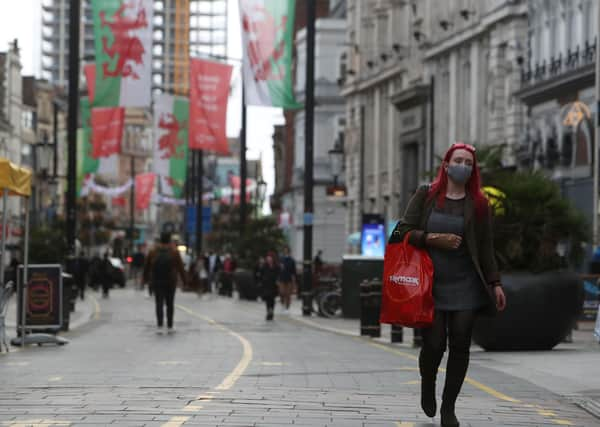Coronavirus: Is the language of lockdown increasing cases?


Social psychologist, Professor Stephen Reicher, of St Andrews University, said that it was a “mistake” and a “tragedy” to use the word “lockdown” when introducing restrictions, as it “sounds punitive – lockdown is something you do in a prison to people who’ve done something wrong”.
As a result, he said, there was “resistance” among sections of the public to what was being asked of them, hindering governments’ abilities to stop the spread of the virus.
Advertisement
Hide AdAdvertisement
Hide AdGiving evidence at the All-Party Parliamentary Group on Coronavirus today, Prof Reicher also said a lack of “clarity and equity” around restrictions was adding to public resistance and that a shift by the UK Government to using language “blaming” the public was adding to people’s “alienation”.
“If I could wave my wand and do one thing, I would get rid of the language of lockdown and reconceptualise this much more in terms of how do we support communities that are suffering, and if we did it that way you’d get much less resistance and political shenanigans that are going on at the moment,” he said.
“"People will suffer for a cause, they won’t suffer for no reason at all. If you continue with restrictions that have not been particularly effective, people will wonder what is the point of making sacrifices to no good effect.
"If people felt there were restrictions which achieved something they would go along with them, so a clear and strong set of measures, even if more restrictive in the short term, are far more likely to get compliance and be more successful in the long term.”
But he added: "We’re beginning to see a situation where the government is blaming people, and if you blame them, then you alienate them. You make others feel complacent, that ‘it’s nothing to do with them’, and you divide people.”
Referring to Police Scotland statistics, which showed they had been called to 430 house gatherings, he added: “Less than 2 per cent had more than 15 people, the mythical house party; the vast majority were people slightly bending the rules, having one or two more people round, and when police knocked on the door, they said ‘why are you knocking our door? we’re not having a party’. So they didn’t think it was self-relevant. But it's these small violations that cause the problems.
"We need to completely reset the relationship between government and public, there needs to be a lot more humility. We don't need world-beating this or that, we need functional this and that, we need to be able to admit our mistakes and we've got things wrong and how we're going to improve them."
He said the "threat of fines" also meant people might not get tests if they could be potentially "criminalised", nor would they "give up the names of their mates".
Advertisement
Hide AdAdvertisement
Hide AdA message from the Editor:Thank you for reading this article. We're more reliant on your support than ever as the shift in consumer habits brought about by Coronavirus impacts our advertisers.
If you haven't already, please consider supporting our trusted, fact-checked journalism by taking out a digital subscription.
Comments
Want to join the conversation? Please or to comment on this article.